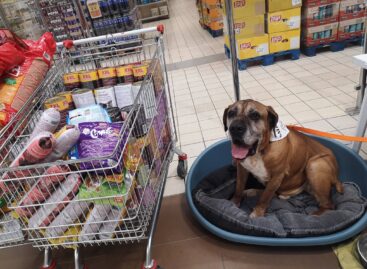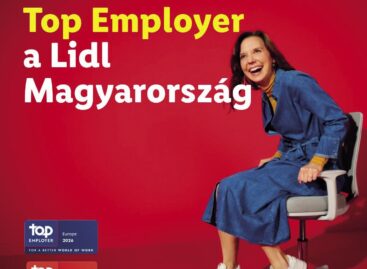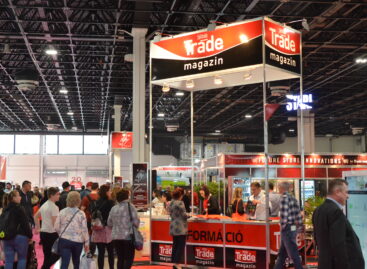Sustainability in the pressure of time
Sustainability is no longer just a moral issue, but an economic, social and environmental imperative.
This article is available for reading in Trade magazin 2025/8-9.
FAO, GREEN BRANDS and the Hungarian Association of Environmental Enterprises (KSZGYSZ) all support systemic solutions that help economic actors and society build a more liveable, fair and competitive future.
FAO: responses at local and global levels

Oksana Sapiga
communications and
partnerships specialist
FAO
All over the world agricultural and food systems are facing numerous serious and interrelated challenges that require coordinated system-level responses.
According to FAO’s communications and partnerships specialist Oksana Sapiga, one such challenge is the growing impact of climate change, which manifests itself in intensifying heat waves, heavy rainfall, droughts and other extreme weather events. These drastically affect food security, nutrition and livelihoods.
“To support the adaptation of agri-food systems and reduce harmful greenhouse gas emissions, the international community must increase agricultural financing for climate change – and FAO is helping countries to do so”,
she says.
The expert warns that addressing the impacts of climate change on agriculture has never been more urgent. FAO is working to make agri-food systems more efficient, inclusive, resilient and sustainable. They are collecting and promoting good practices tailored to local conditions.
GREEN BRANDS: credibility, reliability and transparency
From 2025 all GREEN BRANDS labels are supplemented with a unique identifier (GB-ID), taking the independent European sustainability label to a new level in terms of green certification requirements.

Hajnalka Kovács-Czövek
country manager
GREEN BRANDS Hungary
“As an international, independent brand assessment organisation, GREEN BRANDS has been awarding its green label to ecologically sustainable brands since 2011. The label can be used by companies that meet the strict environmental certification criteria of GREEN BRANDS. The label is a sustainability certificate registered and recognised in the EU”,
says Hajnalka Kovács-Czövek, country manager of GREEN BRANDS Hungary.
Only those “green” brands can obtain the certification that respond to consumers’ growing awareness of sustainability, environmental protection and healthy lifestyles. Regardless of industry or company size, anyone who achieves a GB index of 51% can get it –the key is sustainable operation.
GREEN BRANDS already offers four types of sustainability audits, but new ones are planned to satisfy market needs.
KSZGYSZ: a green future with a competitive edge

Gergely Hankó
managing director
KSZGYSZ
Gergely Hankó, managing director of the Hungarian Association of Environmental Enterprises (KSZGYSZ) points out that sustainability is no longer just a matter of principle – it also determines business survival.
“Adapting to environmental challenges can’t be delayed and it is becoming increasingly clear: what is still an option today will be an expectation tomorrow. KSZGYSZ has been working for 33 years to make change happen”,
says Gergely Hankó.
In their experience there is still a great deal of ignorance in the field of sustainability. The association’s domestic and international projects – with the involvement of member companies – present serious professional challenges and valuable opportunities on a daily basis, in the areas of river protection cooperation, air quality, the circular economy or school science communication programmes.
KSZGYSZ has begun preparations for the 2026 edition of the very successful Green Economy 2023-2024 study series. This report summarises the experiences and recommendations of the domestic environmental sector.
SPAR’s 2024 sustainability report published
Reduced energy consumption, lower CO2 emissions and more than 90% of food sourced from domestic suppliers – these are the main results of SPAR Magyarország’s 2024 green balance sheet. Last year SPAR curbed its energy consumption by 4.8%, while its direct and indirect carbon emissions were 9.5% lower than in the previous year. In SPAR stores more than 400,000 Munch packages were saved from being thrown away in 2024.
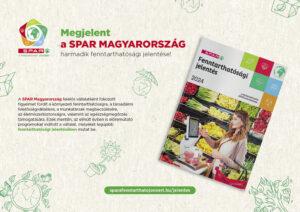
300 tonnes less plastic: Bunge goes green with new packaging
Bunge’s Martfű plant is reducing its environmental impact with redesigned cooking oil bottles and more energy-efficient technology, which will result in 300 tonnes less plastic being used annually – based on 2024 volumes. Bunge has cut plastic use by 11% in its 1-litre cooking oil bottles, which are used for Vénusz, Floriol and private label products. The improved bottles have been subjected to consumer testing.
Henkel pirates on the river Tisza: 750kg of waste collected
The Henkel team participated in this year’s Lake Tisza PET Cup, where the group joined 14 other corporate and civil society teams to collect several tonnes of waste from the Tisza floodplain. At the 6th Lake Tisza PET Cup participants sailed from Tiszafüred to Dinnyéshát, cleaning up the riverbank. Henkel’s fleet consisted of 15-20 people and collected 750kg of waste, contributing to the total result of more than 10 tonnes.
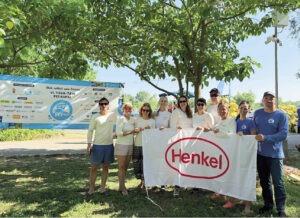
The Henkel team collected 750 kg of waste, contributing to a total result of over 10 tons
500 million beverage containers returned to Lidl stores
A significant amount of PET bottles, aluminium cans and glass bottles were collected at Lidl’s REponts: by mid-July 2024 customers returned more than 500 million beverage containers to Lidl stores, accounting for nearly a fifth of all returns in Hungary. More than half of the returned containers were PET bottles, 41% were aluminium cans and 7% were glass bottles.
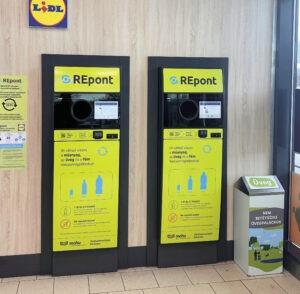
Green milestone in Székesfehérvár: solar park inaugurated at the Mondelēz factory
In early July Mondelēz International inaugurated a new, 6,300 solar panel system at its biscuit factory near Székesfehérvár. The energy production system covers 30% of the plant’s annual electricity use, marking another step towards its Net Zero goals. Built with an investment of USD 2.3m, the solar panel system will lower the plant’s CO2 emissions by around 600 tonnes/year.
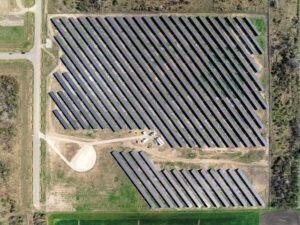
The solar park generates 3,000 MWh of energy annually and reduces the factory’s carbon dioxide emissions by 600 tons
Mars supports dog-friendly offices
According to international research by Mars, the presence of pets not only improves mental health, but also increases work performance – both employees and pets feel good in dog-friendly offices. Research by Mars in 20 countries has found that 83% of pet owners feel that their pets have a beneficial effect on their mental health. Mars is committed to an animal-friendly workplace culture.

Plastic-free July: this is how Auchan motivated customers to make green choices
In 2025 Auchan joined the Plastic-Free July initiative with a campaign, education and highlighting 21 environmentally friendly products, focusing on encouraging and rewarding sustainable choices. Trust Card holder customers could take part in a prize draw by completing an online Green Personality Test, with the main prize being HUF 100,000 worth of Trust Points.
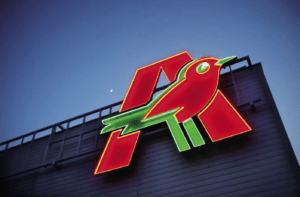
Related news
Bonduelle achieves B Corp™ certification worldwide
🎧 Hallgasd a cikket: Lejátszás Szünet Folytatás Leállítás Nyelv: Auto…
Read more >Lidl Magyarország wins Top Employer award once again
🎧 Hallgasd a cikket: Lejátszás Szünet Folytatás Leállítás Nyelv: Auto…
Read more >Related news
The Store of the Future opens again at the SIRHA Budapest exhibition! (Part 4)
🎧 Hallgasd a cikket: Lejátszás Szünet Folytatás Leállítás Nyelv: Auto…
Read more >


